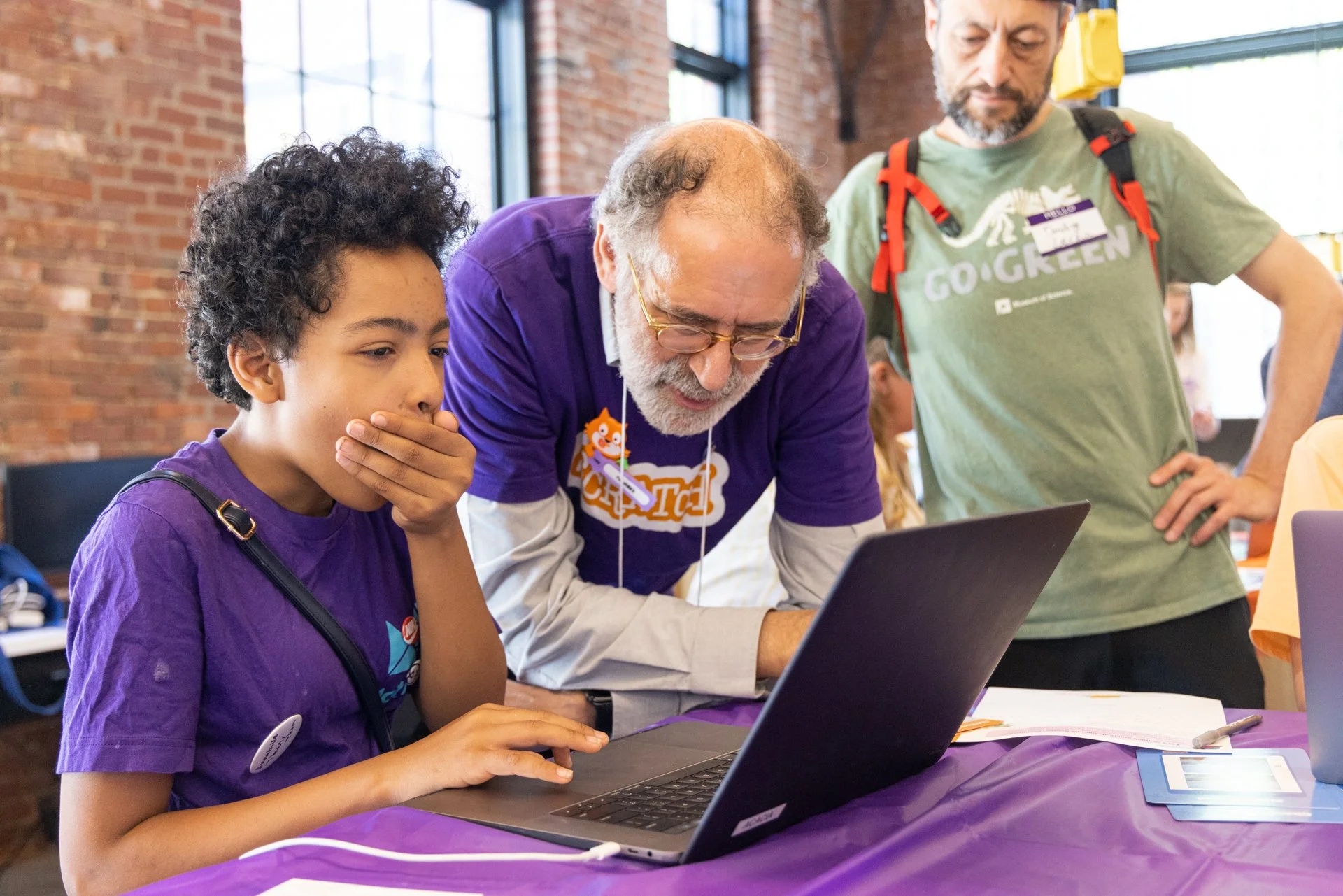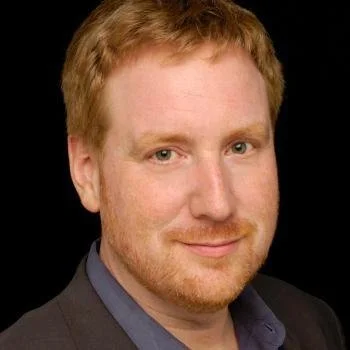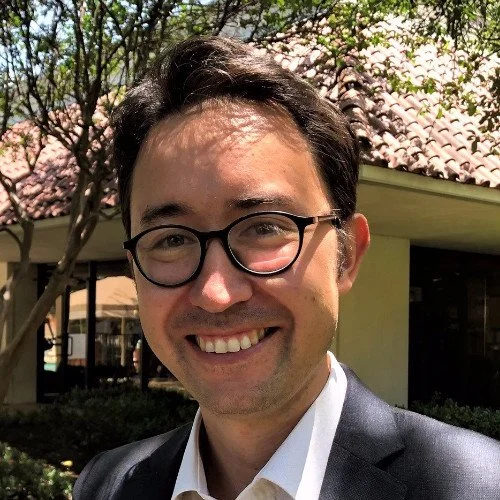About the Convening
Curiosity is more than a trait. It’s a catalyst.
It’s how we learn, how we grow, and how we imagine new possibilities. It sparks discovery, fuels creative thinking, and drives the questions that lead to breakthroughs. Yet too often, curiosity is undervalued or overlooked in education systems.
The Curiosity Convening is a first-of-its-kind gathering that centers curiosity as essential infrastructure for learning.
Hosted by the Scratch Foundation in collaboration with leading researchers and designers, the convening brings together cross-disciplinary thinkers—from neuroscience and artificial intelligence to developmental psychology and educational design—to explore curiosity as both a scientific concept and a design principle.
Together, we will investigate how curiosity can be cultivated, sustained, and scaled across classrooms, communities, and entire systems. With Scratch as a living case study, we’ll surface new insights into how curiosity-driven learning can support deeper, more joyful, and more equitable learning outcomes for young people around the world.
Why Curiosity?
Shaping the Future of Learning Through Curiosity
Impact
The Curiosity Convening is a catalyst for change. By bringing together leading voices from neuroscience, education, design, policy, and more, the Convening aims to spark new ways of thinking about how curiosity fuels learning and development. Together, we’re advancing a collective vision for education that is more imaginative, inclusive, and aligned with the needs of the next generation.
The Convening will include:
A published white paper capturing key insights, frameworks, and calls to action
Cross-sector collaboration that will inform research, product design, and policy
A deeper understanding of how curiosity can be measured, nurtured, and embedded in learning systems
Real-world exemplars, including Scratch, that demonstrate curiosity-driven learning in practice
Partners
Creating positive outcomes for future generations
Thank you to the Gordon and Betty Moore Foundation for their generous support and shared commitment to curiosity-driven learning, making this event possible.
The Gordon and Betty Moore Foundation supports bold ideas that create lasting impact across science, environmental conservation, patient care, and education. Guided by a belief in discovery, curiosity, and measurable progress, the Foundation shares in the Curiosity Convening’s commitment to advancing research and practice that position curiosity as a catalyst for learning, innovation, and human potential.
The Curiosity Convening is a collaboration among:
Helping kids everywhere create what they imagine
The Scratch Foundation is the nonprofit steward of the world’s largest creative coding platform for kids, empowering over 150 million young people around the world to imagine, create, and share interactive projects. Rooted in educational research and a commitment to equity, Scratch brings to the convening a real-world example of how curiosity-driven learning can foster creativity, agency, and global community.
Promote the public welfare by exercising an influence on behalf of humanity and civilization
Stanford University is a global leader in research and innovation, advancing knowledge at the intersection of science, technology, and education. Through the work of Professors Bruce McCandliss and Nick Haber, Stanford contributes deep expertise in neuroscience, artificial intelligence, and developmental psychology, helping bridge cutting-edge research with practical approaches to nurturing curiosity across the lifespan.
Better policies for better lives
The Organisation for Economic Co-operation and Development (OECD) is an international body that works with governments and communities to build better policies for better lives. With over 60 years of global experience, the OECD brings to the convening its “Learning in the Digital World” framework, which is helping to shape international education policy by centering the skills, mindsets, and systems young people need to thrive in a rapidly evolving world.
Two Days of Dialogue and Discovery
Program
The Curiosity Convening is a two-day, cross-disciplinary exploration of how curiosity fuels learning, development, and innovation. Through interactive sessions and real-world case studies, participants will engage with leading ideas at the intersection of research, design, and policy.
The program will examine how curiosity is activated in the brain, cultivated through learning environments and tools, supported by AI-driven technologies, and embedded within educational and philanthropic systems. Spotlights on real-world models—such as Scratch—will showcase curiosity-centered learning in practice.
The convening will culminate in a collaboratively authored white paper, translating insights into actionable strategies to reimagine how we teach, learn, and lead.
📥 Invited participants, find a detailed agenda here.
Program Committee
Nick Haber
Assistant Professor
Stanford Graduate School of Education
Margaret Honey
President & CEO
Scratch Foundation
Maria Janelli
Chief of Staff and Head of Impact
Scratch Foundation
Emma Linsenmayer
Analyst
OECD
Bruce McCandliss
Endowed Professor
Stanford University
Mario Piacentini
Senior Analyst
OECD
Participants
Who’s in the room?
The Curiosity Convening brings together thought leaders from a diverse range of fields – including educational neuroscience, developmental psychology, human-AI interaction, creative learning, curiosity-centered pedagogy, education policy, philanthropy, and youth development. This interdisciplinary group reflects the convening’s core belief: that centering curiosity in learning requires insight and collaboration across research, practice, and systems change.
Participants represent a diverse range of institutions, including:
Bill & Melinda Gates Foundation
Cardiff University
Columbia University
Conseil de France (C. de France)
Emerson Collective
Google.org
Gordon and Betty Moore Foundation
Haute école pédagogique (HEP), Switzerland
Harvard University
Jacobs Foundation
LEGO Foundation
Massachusetts Institute of Technology (MIT)
New York Hall of Science (NYSCI)
OECD (Organisation for Economic Co-operation and Development)
Princeton University
Raspberry Pi Foundation
Scratch Foundation
Siegel Family Endowment
Stanford University
UNICEF
University of Bordeaux
University of California, Irvine
University of Texas at Austin
Vanderbilt University
Washington University in St. Louis
Other collaborators are facilitators and independent experts in learning science, neuroscience, and design.
📥 Invited participants, find a full list of organizations and bios here.













